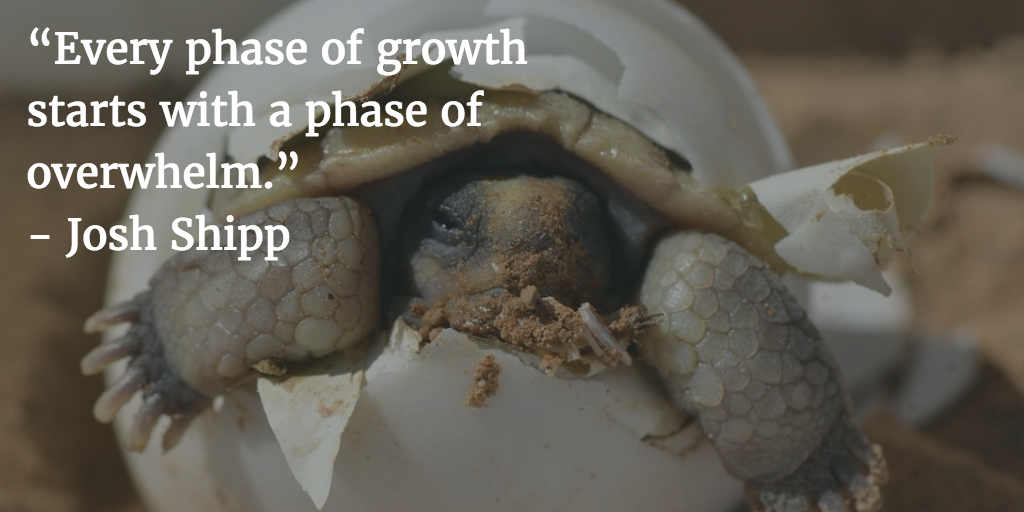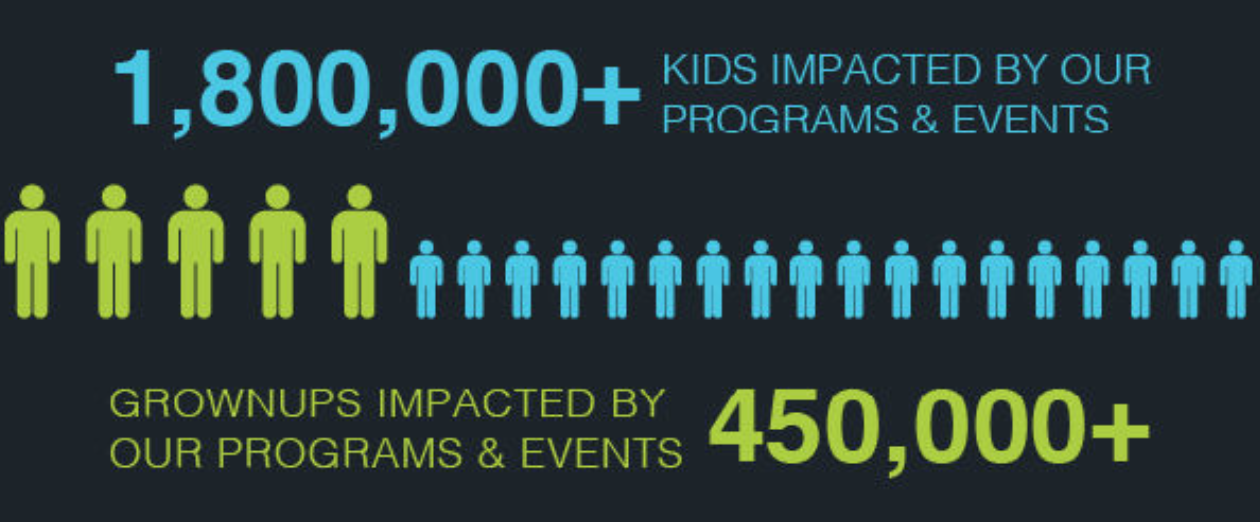Business and Life Lessons with Teen Whisperer Josh Shipp

I mastered the art of getting kicked out of foster homes. I would literally keep a notebook with how quickly I could get kicked out. It was like a game to me.
And as he was heading into what would be his last foster home:
My previous high score is 7 days. I’m going to get kicked out of here in 3.
I’m setting things on fire. I’m stealing the family vehicle. I’m getting suspended from school. And 3 years later I can’t shake this guy. I’m 6 months away from graduation. I get pulled over. And sent to jail.

and his own personal success.
As a business owner, Josh also had some important lessons to share with us. He had two powerful epiphanies over the past year.
As the owner, my personal strengths and weaknesses are the businesses strengths and weakness. Though it’s easier for me to find a weakness in the business, it ultimately comes back to a weakness in me. If I want to make the business better if have to make myself better.
Josh meticulously organizes his week to ensure he, and the business as a whole, focus on the right things:
Monday: CEO day. Left brain stuff like finances, taxes, sales reporting and forecasts. Big picture stuff.
Tuesday: Lead generation. How sites and different ad campaigns are performing.
Wednesday: Communication and human interaction. Phone calls with his team, interviews, etc (that’s the only option I was given when scheduling a call with him).
Thursday: More lead generation
Friday: Content creation
He goes on to describe:
My ocd’ness with my schedule is not because I’m disciplined, it’s because I’m not. This is a hedging against my weakness. The thinking behind this is it takes me a bit of time to get into a particular mindset. The mindset for financials is different than writing a chapter of a book. It takes awhile to warm up and loosen up to any one of those things and then once I get going I’m ok.
If Josh is organized, the business is organized too.
Another of Josh’s biggest challenges lately has been learning to have a team. Going from doing everything himself. To now delegating tasks, trusting employees, and empowering team members to make decisions.
My inability to trust and empower a team, had everything to do with me. I’ve come to learn that if you delegate tasks you build followers, but if you delegate authority, then you build leaders.
In regards to his schedule, I asked, what if your team needs to get in touch with you on a Tuesday?
They can either schedule time on Wednesday or if something is 911 urgent, they can call. But they almost never do.
The other option is they can send an email since it’s not a disruptive form of communication. Josh may or may not reply to it, so he asks them to include ‘UIHD’, Unless I hear differently… They describe the problem. And the proposed solution ‘here’s how I plan on handling it unless I hear from you by x o’clock’.
Win. Win. 🙂
The second business lesson Josh shared with us is:
Intentionally cutting boundaries on my work hours. As a business owner, as an entrepreneur, I could work every hour of every day and no one can tell me not to do such. The great thing about having your own business is you’re your own boss. And the bad thing is that you’re your own boss.
Shipp has set an intentional start and stop to his day, which not only helps him separate business and personal life, but forces him to prioritize and make the most of the hours both with his business and with his family.
Before, when I allowed the time to bleed together, neither had their sacred time. I was always just sort of half there, half not.
This is a great idea and also a core principle of our parent company, Basecamp: Work can wait.
But Shipp doesn’t stop there:
I give my computer to my wife and she locks it away.
I have an iPhone, but I literally don’t have email, Facebook, Instagram, Safari. All I can do from my phone is text or make a phone call. If I had the option to look at email on my phone, I would. That would rob the time from my friends or family. If an issue came up with work I wouldn’t deal with it on my phone anyway… so I don’t give it the chance.
…That has been one of the best things that i’ve ever done.
Josh also has a plethora of business advice in this interview — here’s a few tidbits:
Overnight success:
I think the main thing is that they were in it for the long term. I think in both business and parenting it takes 10 years to become an overnight success.
If it’s right, make it hard to back out:
So let’s say you’ve got a business opportunity and you know it’s the right thing to do but it’s scary. If you happen to be feeling courageous on a particular day I want to encourage you to begin moving that ball down the court — to commit, say ‘Yes, I’m going to do that,’ because in a couple of days you’re going to wake up and question yourself.
Your humanity is what makes you influential:
Regardless of who you are, regardless of your situation, you are human and I think that can be one of your greatest selling points. Your imperfections are what make you human and it is your humanity that makes you influential.
It’s not all Skittles:
Sometimes people think that once they have their dream job there will be, no frustration, no pain, but everyone’s dream career, at best, contains 10% of stuff that’s terrible and awful.
Earn being good:
In order to do something great, you’re going to have to start by doing a slightly crappy version of it.
You have to earn being good — it’s not just given to you because you’re sitting around thinking ‘One day I’m going to be a great speaker’. To be a great speaker you have to get up and give 100 poor presentations and then 100 bad presentations and then 100 decent ones and then 100 mediocre ones and then, eventually, you become alright.
Get a mentor:
Inspiration doesn’t change your life, it’s week in, week out, fine tuning, honing that changes your life.
Researching and speaking with Josh was a pleasure and there’s no way one article can do him justice — he’s funny, he’s a great speaker and he’s on a wonderful mission, one that any of us can participate in.
If every kid is truly one caring adult from being a success story. The difference between a statistic and a success story is you.
P.S. Sign up for Josh’s email list to get more info on how you can make a difference too.
Josh and his team use Highrise to ‘manage the bazillions of details that come with all of these events’. If it works for 500 events x 12 speakers x 28 elements and steps for each event, it might work for you too. Sign up for a 30 day free trial: here. And be sure to follow us on Twitter.

